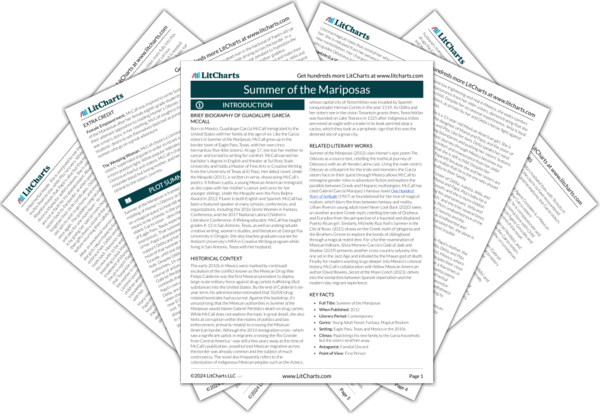Though it does not come up often, Cecilia’s mention of the corrupt chief of police alludes to the historical context of the Mexican drug war, which began in the early 2000s. That her response to the girls’ distress is to feed them rather than offer a phone indicates that she is uninterested in helping them get home. Her criticism of Mamá suggests she believes she would be a better mother to the sisters. Taken in the larger context of her actions, Cecilia’s goal seems to be keeping the girls with her, which is the reason she instructs them to distrust authorities and dismisses Mamá as neglectful.


